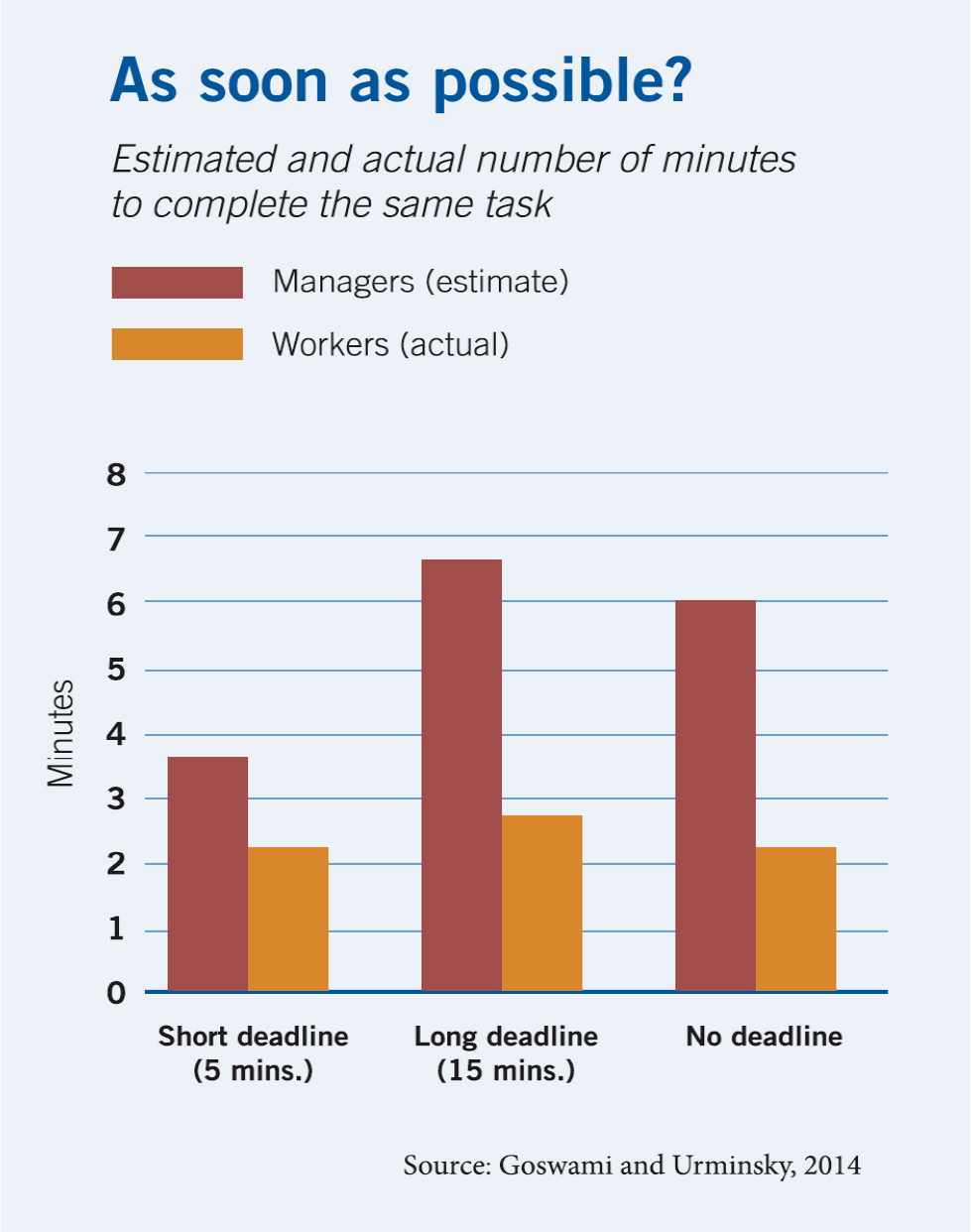
Money Can Inspire Effort More Easily than Insight
Cash is only an effective incentive for certain types of tasks.
Money Can Inspire Effort More Easily than InsightHow rethinking deadlines could save managers time and money
Managers may be overestimating the time it takes to complete a task—and overpaying contractors in the process.

A long deadline makes managers think a task is more involved.
Indranil Goswami and Oleg Urminsky, “More Time, More Work: How Non-diagnostic Time Limits Bias Estimates of Project Duration and Scope,” Working paper, March 2014.

Cash is only an effective incentive for certain types of tasks.
Money Can Inspire Effort More Easily than Insight
Three behavioral scientists discuss the roots of and solutions to workplace miscommunication.
Why Is Everyone So Bad at Communicating? (And How Can We All Get Better?)
The expectation of symmetry in social relationships can influence behavior and even deter crime.
Line of Inquiry: Anuj K. Shah on Why Learning about Others Makes Us Feel Less AnonymousYour Privacy
We want to demonstrate our commitment to your privacy. Please review Chicago Booth's privacy notice, which provides information explaining how and why we collect particular information when you visit our website.